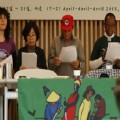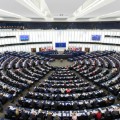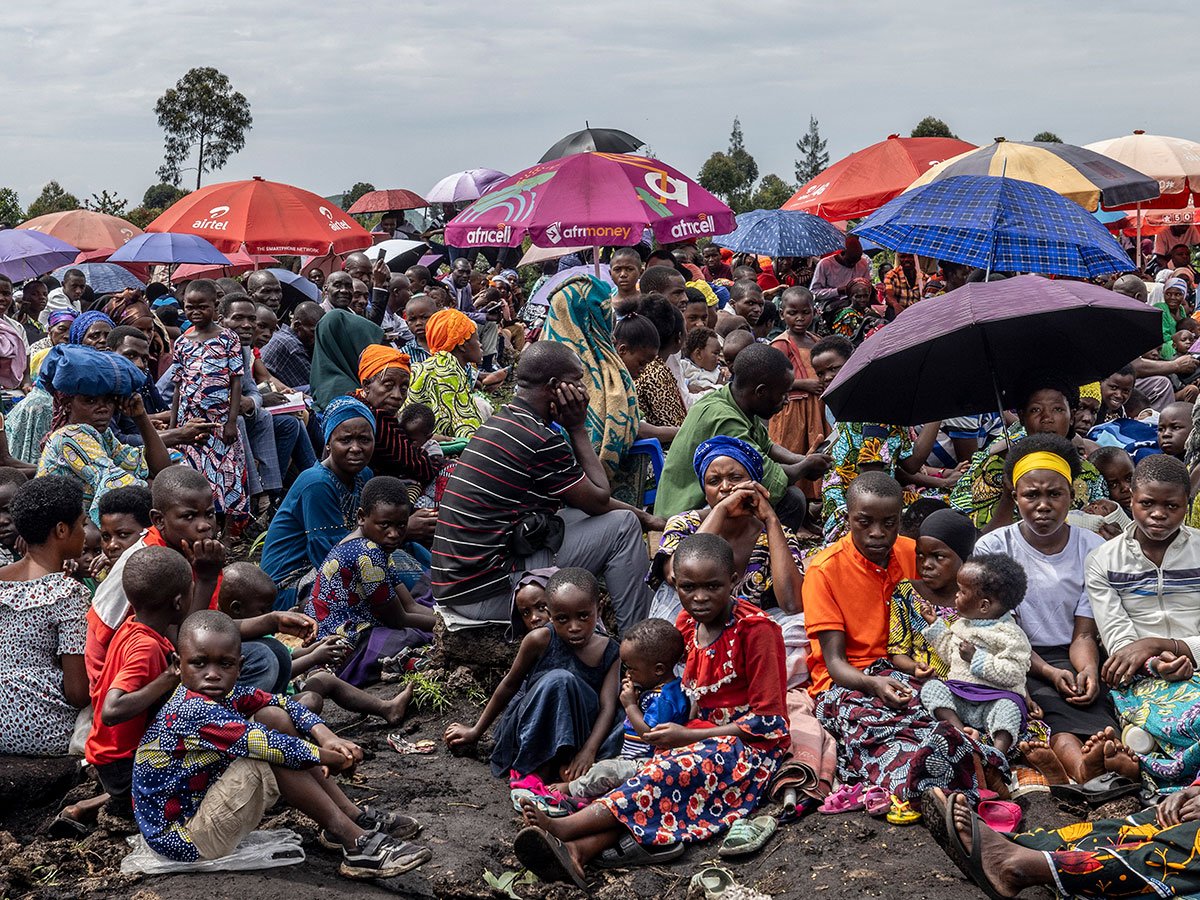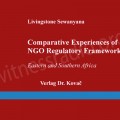This is a critical time at the European Union (EU) when it comes to human suffering and climate impacts caused by transnational corporations, with particular emphasis on fossil fuel corporations, who continue to take deliberate actions to burn the planet. An important new law has been put forward, called the EU Due Diligence Act, which is still being discussed.
However, this law leaves much to be desired, and in its current form, can provide companies, investor states and financial institutions with an easy tick-box exercise, and loopholes, that will enable them to continue creating devastation of the earth, climate and peoples with impunity. The case of the gas industry in Cabo Delgado, northern Mozambique, is a concrete example of how this can happen and is already happening.
Many organisations in Europe including Friends of the Earth Europe have been fighting the passing of this law in its current form and partnered with JA!’s activists at the EU Commission in Brussels in May, to speak to Ministers in the European Parliament (MEP).
To see the full report by Friends of the Earth Europe, ‘‘INSIDE JOB: How business lobbyists used the Commission’s scrutiny procedures to weaken human rights and environmental legislation’’, click here: https://friendsoftheearth.eu/wp-content/uploads/2022/06/INSIDE-JOB_-How-business-lobbyists-used-the-Commissions-scrutiny-procedures.pdf
The majority of players in the Cabo Delgado gas industry are international, and many are from countries within the EU, such as Total from France, Eni from Italy, Galp from Portugal and French, Portuguese, Dutch, Swedish and Danish banks, to name a few.
Many of these oil, coal and gas companies register subsidiaries in the country where they operate, such as Mozambique, and because the current draft EU law says that only ‘big’ companies can be held accountable, this will enable these subsidiaries to get away with their abuses and violations at a domestic level, especially in countries with weakened systems of justice.
Another major issue is that the topic of Free Prior and Informed Consent (FPIC) needs to be clear and strong. For one, it is only mentioned in an annex, and uses the term ‘consultation’ rather than consent, meaning that communities will only have to be informed of the project. It fails to ensure a clear right to say ‘no’, when local communities do not accept a specific project in their territories for fearing its foreseeable impacts. Secondly, it does not take into account the difficulties that come with actually obtaining this consent, the fact that even consent can be bought, coerced or threatened into. This related to what is meant by ‘a legitimate consultation’. For example, in Cabo Delgado, Total’s consultation process with affected communities has been a sham. When Total representatives visited and visit communities for these consultation meetings, they are accompanied by a military entourage. This, along with the presence of leaders who have a beneficial relationship with the company, means that community members are too afraid to speak out and dissent, even if they disagree, and ultimately many signed compensation agreements in public and in a language they did not understand. Yet Total was able to tick the boxes required for a legitimate process.
In general, there is not enough emphasis on preventing harm, and far more on remedy. It does not deal with what should be the foundation of the discussion, which is that there should be no harm or violations committed in the first place, and that appropriate punitive and coercive sanctions must be put in place when they are committed.
Burden of proof is too high.
In many laws, including in this draft EU law, the burden is on the claimant to prove the crime, which in this case means that corporations are innocent until proven guilty, and the assumption is that communities are not telling the truth. Communities are expected to show that their human rights were violated, amongst all difficulties linked to the asymmetry of power and complicity with national governments, while companies will only need to show that they followed the required processes needed for a project to be developed in that area. In order for community complaints to be considered ‘credible’, they are expected to provide information that is not easy for them to come by, such as written documentation and emails, video and photographic evidence, and named testimonies and witnesses, to show that the companies did not act in compliance with the law and international norms and standards. Amidst global overlapping crisis strongly linked to the power and impunity of these transnational corporations, the burden of proof should be on the companies to prove they are not responsible for the harm, or that they cannot control companies in their global value chains.
The legislation does not recognise that people cannot provide this information – they often do not have access to technology, knowledge of the language used, information in writing and in many cases their lives would be at risk for speaking out.
In the case of Cabo Delgado many mainstream media articles coming out toe the government line and there have been instances where journalists who tell the truth have been arrested and tortured, or even disappeared. Media, civil society and government officials who enter the gas area are accompanied by a military and government entourage, which makes it unlikely that communities will talk about their experiences honestly. These obstacles are not taken into account.
And on climate change
The draft EU law is not clear about companies’ compliance with the Paris Agreement and keeping below the 1.5 oC degree emissions target. Instead, it speaks of ‘compatibility’ which leaves much room for industry to claim that the agreement is ‘open to interpretation’ as they have done before several times.
As long as essential issues in the draft EU law are not addressed, including binding law on compliance with climate agreements, the reversal of the burden of proof and the establishment of clear provisions to deal with neocolonial power dynamics and systemically exploitative nature of big transnational companies , it will be yet another stamp with which the industry will show off its deceiving processes to ‘meet requirements’.
When governments are questioned on their unwillingness to sanction companies and financiers, they often claim that ‘holding dialogue’ with these companies is more effective in the long run. They have said, in several instances, that sanctioning companies should be the last resort, and will lead to them having no input into companies’ actions whatsoever. This system of continued dialogue is clearly not working -companies are continuing to act with impunity – and instead, institutions like the EU need to take ‘take responsibility for the harms of its companies, with great impacts in the global South, and take a step further to actually sanctioning them.
The insufficiency and limitations of a regional legislation
At a broader level, and even though EU corporate regulation laws are undoubtedly needed, this Due Diligence directive will not solve the global problem of corporate impunity. A regional directive – especially one linked with such a weak concept as ‘due diligence’ – must complement the process towards a UN legally binding instrument to regulate transnational companies in international human rights law (the ‘UN binding treaty on TNCs’), ongoing since 2014. Surprisingly enough, the reluctance of the EU and most of its member States to adequately engage in the UN binding treaty negotiations has been reaffirmed session after session and, unsurprisingly, heavily criticized by civil society from across the world.
Without a global level playing field, companies will continue choosing the best places to violate human rights and cause economic, social, environmental and climate impacts. Or choosing the best jurisdiction to register their parent companies. Both the EU and UN laws must include direct legal obligations to companies, affirm the primacy of human rights over trade and investment agreements, and establish judicial enforcement mechanisms. The negotiations of these or any laws aimed at regulating corporate activities should logically be protected from corporate capture and influence. The EU must include several key elements in its new directive in order for it to be meaningful – and this effort must be accompanied by the EU finally taking up its responsibility to start engaging actively and constructively in the negotiations for an ambitious and effective UN binding treaty.
Ending corporate impunity must necessarily mean that we close the legal loopholes and gaps which allow transnational corporations to evade responsibility – at national, regional and international levels.
Source: ja4change.org


 MEDIA FOR CHANGE NETWORK5 days ago
MEDIA FOR CHANGE NETWORK5 days ago
 MEDIA FOR CHANGE NETWORK2 weeks ago
MEDIA FOR CHANGE NETWORK2 weeks ago
 MEDIA FOR CHANGE NETWORK1 week ago
MEDIA FOR CHANGE NETWORK1 week ago
 MEDIA FOR CHANGE NETWORK5 days ago
MEDIA FOR CHANGE NETWORK5 days ago
 NGO WORK7 days ago
NGO WORK7 days ago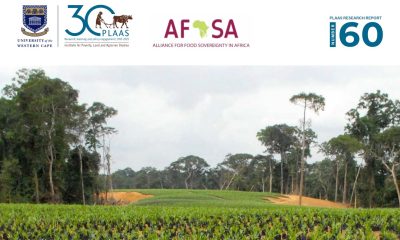
 NGO WORK6 days ago
NGO WORK6 days ago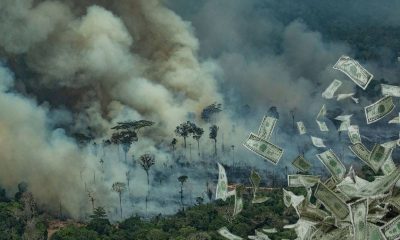
 NGO WORK6 days ago
NGO WORK6 days ago
